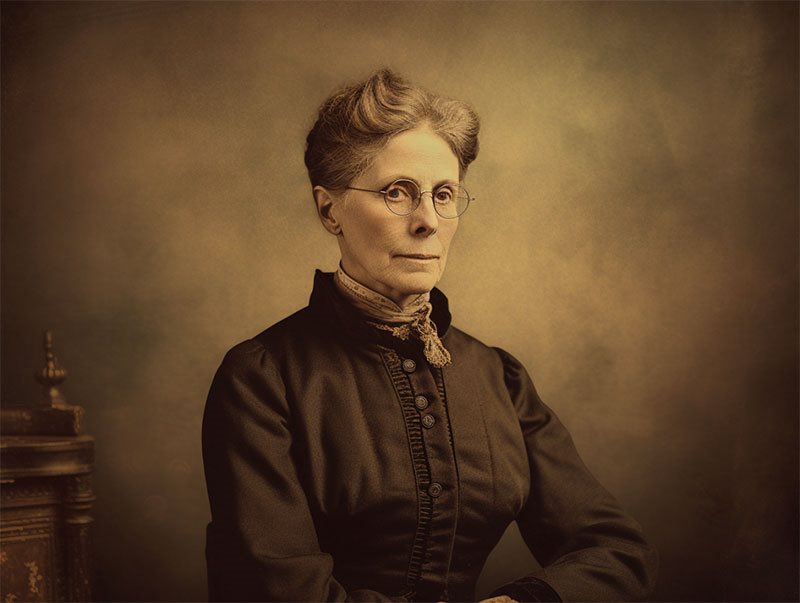Carrie Nation, born Carrie Amelia Moore on November 25, 1846, in Garrard County, Kentucky, was a formidable figure in the American Temperance Movement, known for her audacious methods and uncompromising stance against alcohol consumption.
Early Life and Personal Experiences
Carrie Nation's early life was characterized by hardship and personal tragedies that shaped her perspective on alcohol. Her mother suffered from mental illness, and her first husband, Dr. Charles Gloyd, was an alcoholic who died just a year after their marriage (Kerr, 2010). These experiences, compounded by her strong Christian faith, solidified her resolve to fight against alcohol consumption.

Entry into Temperance Activism
Nation joined the Woman's Christian Temperance Union (WCTU) in the late 1880s when she lived in Medicine Lodge, Kansas (Cherrington, 1920). However, it was her unique form of protest, known as "hatchetations," that marked her as an extraordinary figure in the temperance movement.
In 1900, believing she was divinely ordained, Nation began her infamous saloon-smashing campaign in Kiowa, Kansas. Armed with a hatchet, she destroyed bar fixtures and stocks of alcohol with an unyielding zeal (Asbury, 1950). While her violent actions were not endorsed by all members of the WCTU, they attracted significant media attention and stoked public discourse on the alcohol problem in America (Graves, 2002).
Impact on the Temperance Movement and Legacy
Carrie Nation’s fervent crusade elevated public awareness on the perceived social and moral problems associated with alcohol consumption. Her relentless activism indirectly contributed to the implementation of Prohibition through the 18th Amendment in 1920 (Kyvig, 1979).
Despite facing numerous arrests and public ridicule, Nation remained steadfast in her mission. She used her platform to advocate for women's rights and against domestic violence, linking these issues to alcohol consumption. Beyond her destructive protests, Nation also promoted her cause through speeches, a newsletter called "The Hatchet," and the autobiography "The Use and Need of the Life of Carry A. Nation" (Nation, 1908).
Carrie Nation passed away on June 9, 1911, but her legacy lived on, personifying the aggressive fight against alcohol that characterized the temperance movement. Her life and work continue to be a testament to the power of individual conviction in effecting societal change, irrespective of the unconventional methods employed.
References
- Kerr, K. Austin (2010). "Carrie A. Nation: The Famous and Original Bar Room Smasher," American National Biography.
- Cherrington, Ernest Hurst (1920). Standard Encyclopedia of the Alcohol Problem, vol. 4, American Issue Publishing Company.
- Asbury, Herbert (1950). Carry Nation. New York: Alfred A. Knopf.
- Graves, John William (2002). "Kansas History and the WCTU: A View of the Woman's Crusade," Kansas History: A Journal of the Central Plains.
- Kyvig, David E. (1979). Repealing National Prohibition. The University of Chicago Press.
- Nation, Carry A. (1908). The Use and Need of the Life of Carry A. Nation. Topeka: F. M. Steves & Sons.





















